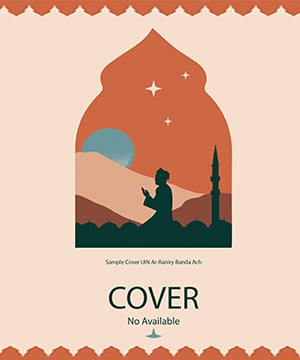References
Alhabshi, Syed Omar. (1991), “Waqf management in Malaysiaâ€, in Ariff, Mohamed (ed)(1991), The Islamic Voluntary Sector in Southeast Asia, Institute of Southeast Asian Studies, Singapore.
Ariff, Mohamed. (1991), “Resource mobilization through the Islamic voluntary sector in Sotheast Asiaâ€, in Ariff, Mohamed (ed)(1991), The Islamic Voluntary Sector in Southeast Asia, Institute of Southeast Asian Studies, Singapore.
Gusva Havita, Kartika Arum Sayekti, Silvia Ranny Wafiroh. Model bank wakaf di indonesia dalam potensinya untuk mengembangkan wakaf uang dan mengatasi kemiskinan
Kahf, Monzer. (1998). Financing The Development of Awqaf Property. Working Paper for the Seminar on Development of Awqaf by IRTI, (Malaysia:Kuala Lumpur)
Karim, Reazul. (2011). “Zakat And Waqf Bank†- For Social Development And Improved Management Of Endowments. Institute of Hazrat Mohammad (SAW)
Mannan, MA. (2011). Cash waqf: Living by Giving and Sharing. Towards Establishment of world Social Bank.
Mannan, MA. (1999). Local Challenges, Global Opportunities. Proceedings of the third Harvard University Forum on Islamic Finance. Center for Middle Eastern Studies. 1999. Pp. 243-256
Mohammad, Haji., Sabit, Mohammad Tahir. (2006), “Innovative modes of financing the development of waqf propertyâ€, paper at Konvensyen Wakaf Kebangsaan 2006, Jabatan Wakaf Zakat dan Haji, Jabatan Perdana Menteri, Malaysia.
Masyita, Dian. (2005). A Dynamic Model for Cash waqf Management as One of The Alternative Instruments for The Poverty Alleviation in Indonesia. The 23rd International Conference of the System Dynamics Society. Massachussets Institute of Technology (MIT), Boston.
Sabit, Mohammad Tahir., Mohammad, Haji. (2011). Towards an Islamic Social (Waqf) Bank. International Journal of Trade, Economics and Finance, 2(5).
Tohirin, Achmad. (2010), The Cash waqf for Empowering the Small Businesses. Seventh International Conference – The Tawhidi Epistemology. Zakat and Waqf Economy, Bangi.
Republika.co.id. (2014). BWI: Potensi Wakaf Indonesia mencapai 120 trilliun, [Online], Available:http:republika.co.id/berita/dunia islam/wakaf/14/05/23/n615ie-bwi-potensi-wakaf-indonesia-capai-120-triliun [1 December 2014]
Ridhwan, Muhammad Ab., Johari, Aziz Fuadah., Yusof, Mohd Asyraf,. (year). Cash waqf Models For Financing In Education
 Skip to main content
Skip to main content



.png)


.png)
.png)
.png)




